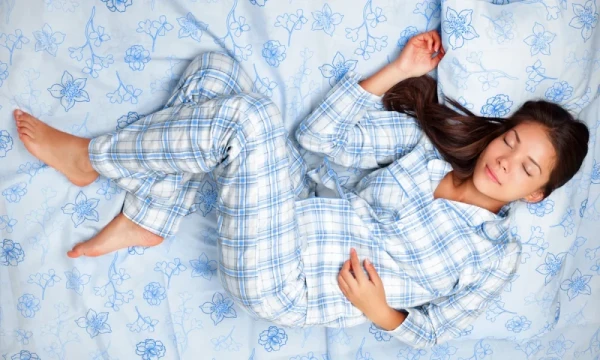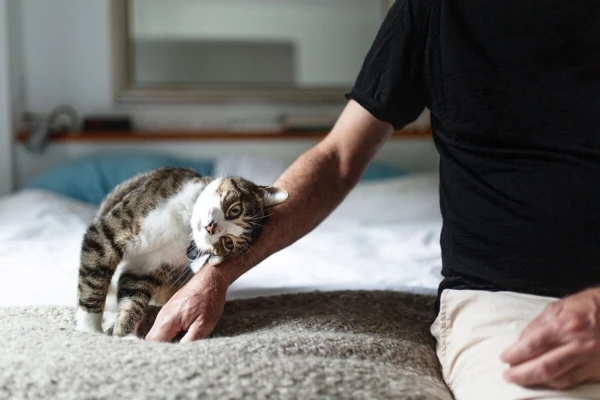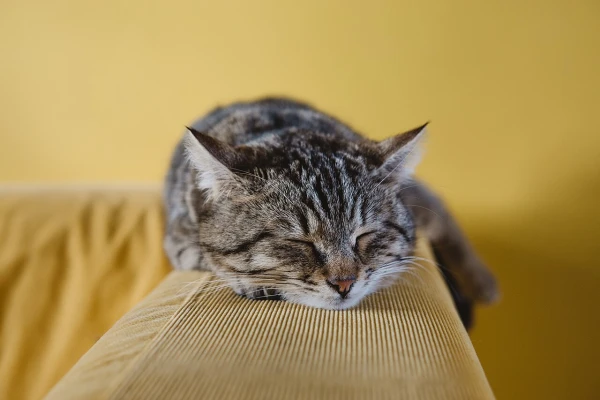
Everyone is familiar with advice like "don't drink coffee in the evening" or "keep your phone away from the bed." But, as the doctors themselves admit, sleep is a very individual matter: it is influenced by health, work schedule, lifestyle, and stress levels. Therefore, what helps one person may be useless in another situation. These simple steps help doctors maintain quality sleep and can be useful for anyone looking for an effective ritual for evening relaxation.
1. Listen to your internal clock
Each of us has our own circadian rhythm — biological clocks that determine when we feel more alert and when we feel sleepy. Some people find it easier to wake up at six in the morning, while others are more comfortable working in the evening and going to bed closer to midnight.
Dr. Jennifer Martin, a professor of medicine at the University of California, Los Angeles, emphasizes that the key to good sleep is to align your schedule with these internal clocks. For her, this means going to sleep around 10:00 PM to wake up early and well-rested. For "night owls," this may mean a later wake-up time. The main thing is regularity: studies show that a stable sleep schedule improves the functioning of the hormonal system and digestion.
Tip: Choose a wake-up time that suits you and try to go to bed so that you get 7–9 hours of sleep. Even weekends are better spent in this same rhythm.
2. Get morning light
Almost all specialists note the importance of morning sunlight. A walk or even a few minutes on the balcony helps the body "reset the timer" and understand that the day has begun. Light suppresses melatonin production and synchronizes biological rhythms.
Dr. Rebecca Robbins, a specialist from Brigham and Women’s Hospital, takes a short walk with her children and dog. She also places her desk by the window to catch as much light as possible in the morning.
When there is little sunlight (for example, in winter), light therapy lamps come to the rescue. Devices with a brightness of about 10,000 lux mimic bright daylight and help cope with seasonal drowsiness and even symptoms of winter depression.
Tip: Try to go outside for at least 10–15 minutes after waking up. If you live in a region with long winters, consider using a light therapy lamp.
3. Limit alcohol in the evening
Alcohol can induce drowsiness, but studies show that it disrupts sleep depth and causes frequent awakenings at night. Dr. Martin notes that she used to allow herself a glass of wine and sleep soundly, but as she aged, she became much more sensitive.
This does not mean complete abstinence: most experts admit that they allow themselves alcohol on holidays. But in everyday life, they prefer not to risk sleep quality.
Tip: If you notice that your sleep is restless after drinking alcohol, try to avoid beverages in the evening for at least a couple of weeks — and compare the difference.
4. Create an evening relaxation ritual
Preparing for sleep starts long before you lie down in bed. Doctors develop the habit of "slowing down": dimming the lights, putting away their phones, and engaging in calm activities.
Dr. Martin plays soft music and does skincare. Dr. Robbins takes a warm bath and does breathing exercises. Many note that reading a physical book helps them switch off and signals to the brain: it’s time to rest. Over time, the brain begins to perceive this ritual as a signal for sleep, and falling asleep happens faster.
Tip: Choose three simple actions for the evening (for example: shower, face cream, reading) and repeat them every day in the same order.
5. Plan a morning worth waking up for
Interestingly, for some doctors, morning habits have a greater impact on sleep than evening ones. Dr. Martin admits that she falls asleep more easily in the evening when she knows that a pleasant ritual awaits her in the morning — coffee, time with her pet, or a workout.
Psychologists explain this as follows: positive anticipation of the morning helps the body relax in the evening and relieve anxiety related to the upcoming day.
Tip: Create a morning "anchor" — a small ritual that will bring you joy every morning. This could be a cup of your favorite tea, yoga, music, or a walk.
6. Treat sleep as a priority
It sounds obvious, but many underestimate it: without quality sleep, everything suffers — from mood and memory to immunity. Sleep doctors place rest on par with nutrition and physical activity.
Dr. Brandon Peters, author of The Sleep Apnea Hypothesis, dedicates a whole hour to reading before bed and tries not to take his phone to bed. Dr. Harris exercises daily — not only for health but also for quality sleep.
Tip: Try to treat sleep as an important meeting: do not cancel or postpone it for work or errands unless the situation is urgent.













